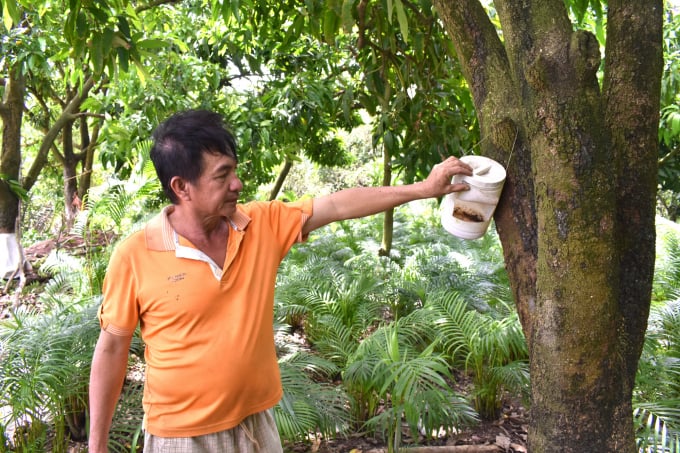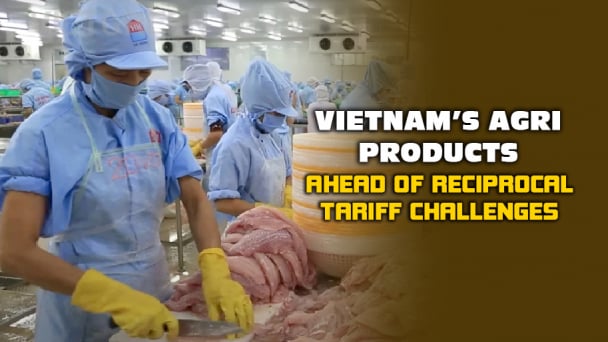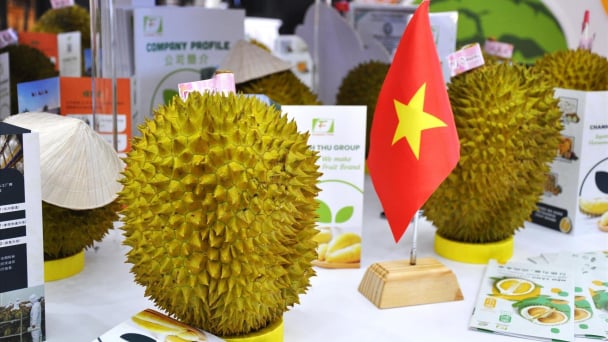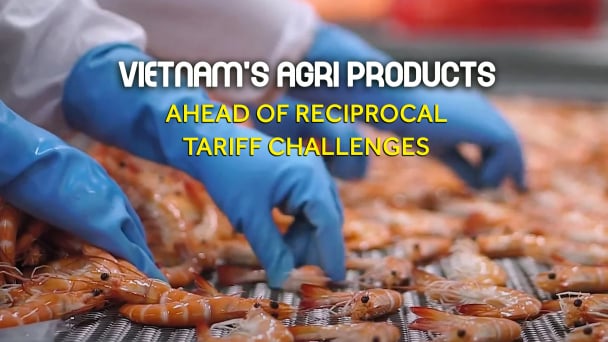May 30, 2025 | 09:23 GMT +7
May 30, 2025 | 09:23 GMT +7
Hotline: 0913.378.918
May 30, 2025 | 09:23 GMT +7
Hotline: 0913.378.918
In recent years, agricultural production in the Mekong Delta is considered to have to adapt to climate change. Rice production has been able to avoid a number of basic natural disasters such as flooding, saline intrusion, drought, etc. due to a system of irrigation works and non-structural solutions.
Among the non-structural solutions is the building of a map of climate risk and adaptation, which has been actively implemented with high efficiency by the Ministry of Agriculture and Rural Development (MARD).
Specifically, in coastal areas with high risk, the Department of Crop Production has rearranged the sowing timetable earlier in extreme years for about 400,000 ha. In these areas, harvest will take place before saline intrusion and are synchronized with the successful operation of the irrigation system.

Farmers dredge gardens for fresh water storage to cope with saline intrusion. Photo: Minh Dam.
In the Mekong Delta's fruit production, the intercropping areas are located in islets, riverside areas or on land converted from rice to fruit trees.
The functional sector has recommended farmers most specifically to build a system of garden ditches and ponds to store water in case of drought. In addition, technical solutions are advised to implemen to overcome the damage caused by drought and saltwater intrusion. Since the 2019-2020 dry season, farmers, functional sectors, and local authorities at all levels in the Mekong Delta have been actively coping with saline intrusion and implementing many solutions to adapt in both short and long term.
In Tien Giang, during the 2019-2020 dry season, deep and prolonged saline intrusion had affected the main fruit-producing areas in western districts. Nearly 5,000 ha of durian were affected, of which 3,000ha had been seriously damaged.
Mr. Nguyen Van Man, Director of Tien Giang Department of Agriculture and Rural Development (DARD), said: “The province had actively coordinated with the Southern Fruit Institute to implement models in restoring orchards, especially durian trees after the impact of salinity and drought.
Besides, the province also actively implemented a project on building temporary dams when the dry season comes. Forecasting on saline intrusion was carried out in a timely manner. In the long term, the province has been supported by the MARD to build dams along the inter-provincial road 864 to ensure production safety before drought and salinity. Up to now, durian areas in the province affected by drought and salinity have been recovered and farmers have also continued to replant this high-value fruit."

Farmer Le Van Dien checks the yellow fly trap in his mango orchard. Photo: Minh Dam.
In other provinces such as Vinh Long, Ben Tre and Tra Vinh, authorities and local farmers are also very cautious of drought and salinity to protect their fruit trees.
Recently, we returned to visit Thanh Binh - Quoi Thien island (Vung Liem district, Vinh Long province) where farmers growed many kinds of specialty fruits of high value such as durian, green-skinned grapefruit, mango, etc.
During droughts before, the irrigation system was not completed and the vigilance was not high, so damages were reported with many durian orchards completely lost. Fortunately, this time we could see that farmers had well coped with drought and salinity.

Preliminary processing of pomelos for export at Ben Tre Green-skinned Grapefruit Cooperative. Photo: Minh Dam.
Mr. Le Van Dien, Deputy Director of Quoi Thien Mango Cooperative, Vung Liem district, said: "This year, the embankment is closed and the culvert is covered, so salt water can be controlled. In addition, the DARD has timely forcasted about salinity on the radio while farmers join the "salt water" zalo group to get information..."
However, according to Mr. Le Thanh Tung, Deputy Director of the Department of Crop Production, these activities only ensure the yield and quality of fruit. As for fruit consumption, the Mekong Delta still suffers from adverse market conditions... Tung pointed out the reason saying that: “The fruit production chain is not as coherent as the rice chain."
"For example, in the rice chain, we have very stable domestic and export markets and very stable output. Changes in seed quality structure will lead to changes in the consumption market and help reduce production costs. Besides, a short-term duration is also easier to implement. For fruit trees, the time is fixed in exploitation with a period of 5-10 years. Therefore, when there is a fluctuation in market demand, the adaptation of the fruit industry will be slower than that of the rice industry so it faces more difficulties."
According to Tung, at present, to adapt well to climate change, the fruit industry needs to take into account and well-solve the two factors. Firstly, cooperatives, farms, domestic consumption and export enterprises need to have closer links. Second, growers need to actively reduce production costs and increase the standard of food safety. This will make it easy for businesses to consume because he believed that food safety is more important than quality.
Mr. Tung said that to do so, fruit farmers and businesses must have a common consensus and always be aware that they are "competing with tropical products from neighboring countries such as Thailand, the Philippines, Indonesia, Laos and Cambodia ... even in the domestic market, not only for export because the domestic market is very large."
Another important issue that Tung also wanted to share with farmers was that: "It is not possible to actively set the selling price" because in the free market there are many competitive products from different countries. The price must be determined by the market. Vietnamese fruits not only compete with tropical fruits but also with temperate ones. Therefore, production costs must be reduced in order to maintain a safe level of income. “We want farmers to understand this so that they can accompany the state management agencies and Vietnamese enterprises to increase competition in the world market or with imported products right on the domestic market," added Mr. Tung.
Translated by Trang Nguyen

(VAN) Reciprocal tariffs are exerting pressure on U.S. exports, prompting Vietnamese firms to shift their focus to Muslim markets, Thailand, and Brazil.

(VAN) A free booth for two years at Xinfadi, Beijing's largest wholesale market, will be allocated to Vietnam's agricultural products.

(VAN) Vietnamese shrimp exporters are actively looking for alternative markets and accelerating shipments to the United States in response to the pressure of impending reciprocal tariffs. This is occurring during a temporary tariff suspension.

(VAN) The import-export turnover between Vietnam and Singapore rose amid a trade rebound, with machinery, electrical equipment, and fuels making up the majority of the transaction value.

(VAN) Director General of the General Administration of Customs of China, Ms. Sun Mai Jun, has pledged to implement measures that will ease the import process for Vietnamese agricultural products.

(VAN) Although Vietnam is still increasing its coffee exports, the industry is currently in the process of determining market strategies in response to the U.S. imposition of reciprocal tariffs.

(VAN) With rising demand in Muslim-majority countries, Halal certification is becoming a critical passport for Vietnamese agricultural products seeking sustainable market access and consumer trust in the Middle East and Africa.